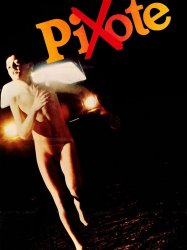Three Loves in Rio is a brésilien film of genre Drama with Susana Freyre
Three Loves in Rio (1959)

If you like this film, let us know!
Three Loves in Rio (Portuguese: Meus Amores no Rio, Spanish: Mis amores en Río) is a 1959 Brazilian-Argentine drama film directed by Carlos Hugo Christensen. It was entered into the 9th Berlin International Film Festival.
^ "IMDB.com: Awards for Three Loves in Rio". imdb.com. Retrieved 2010-01-10.
Actors
Comments
Leave comment :
Suggestions of similar film to Three Loves in Rio
There are 16 films with the same actors, 89562 with the same cinematographic genres (including 3894 with exactly the same 3 genres than Three Loves in Rio), to have finally 70 suggestions of similar films.If you liked Three Loves in Rio, you will probably like those similar films :

Swan Song (1945)
, 1h49Genres Drama, Romance
Themes Films about music and musicians
Actors Susana Freyre, Mecha Ortiz, Aurelia Ferrer
Rating65%






Devil in the Flesh (1947)
, 1h18Genres Comedy, Romance
Actors Susana Freyre, Juan Carlos Thorry, Susana Canales, Norma Giménez
Rating66%





 , 1h32
, 1h32Directed by Leopoldo Torre Nilsson
Origin Argentine
Genres Drama, Romance
Actors Isabel Sarli, Francisco Rabal, Jardel Filho, Alberto Barcel
Rating62%





Cora, prostituée d'une maison close de la pampa, revoit son passé : autrefois, jeune femme saine et ravissante, elle travaillait dans une pulpería de la campagne argentine où débarqua, un jour, un beau cavalier d'origine polonaise. Pour celui-ci, elle vola de la marchandise à ses employeurs. Puis, il revint la chercher et l'emmena chez lui dans les rudes régions de la Patagonie du Nord. Il la traita comme son épouse servante et obéissante. Ils vécurent sans histoires jusqu'à ce qu'un voleur de bétail, pourchassé par les gardiens de troupeaux, survint dans leur enclos. Atteint par une balle, l'homme n'était pourtant pas mort. Cora le protégea et le soigna. La vie à trois aiguisa bien vite les appétits et les convoitises. Le Polonais découvrit le secret de l'autre : une ceinture chargée de billets de banque. Il échafauda un meurtre. Le même jour, le voleur de chevaux proposa à Cora d'abandonner le mari au fonds d'un puits. Celui-ci, inlassablement creusé, était censé contenir de l'or noir. Mais, c'est plutôt Cora, par vengeance, qui les y laissa choir. À présent, remords et sentiment de culpabilité l'obsèdent sans cesse.

The Demon is an Angel (1951)
Origin Venezuela
Genres Comedy
Actors Susana Freyre, Juana Sujo, Juan Carlos Thorry

Paper Boats (1963)
, 1h15Directed by Román Viñoly Barreto
Genres Drama
Actors Pablito Calvo, Jardel Filho, Nelly Láinez, Alberto Olmedo, Alita Román
Rating57%





 , 1h24
, 1h24Genres Comedy
Actors Pepe Arias, Guillermo Battaglia, Susana Freyre, Alberto Contreras, Amalia Sánchez Ariño, Olga Zubarry
Rating65%





A man who has been widowed six times is living with his six mothers-in-law.

Navy's girlfriend (1948)
, 1h12Directed by Benito Perojo
Genres Comedy
Actors Susana Freyre, Alberto Bello, Tito Climent, Alberto de Mendoza, Susana Campos

Hoy cumple años mamá (1948)
, 1h25Genres Comedy
Actors Susana Freyre, Olinda Bozán, Inda Ledesma, Carlos Enríquez, Alberto Bello

Macunaima (1969)
, 1h50Directed by Joaquim Pedro de Andrade
Origin Bresil
Genres Comedy, Fantasy
Actors Paulo José, Dina Sfat, Jardel Filho, Rodolfo Arena, Milton Gonçalves, Maria Lúcia Dahl
Rating67%





Based on the 1928 book by Mário de Andrade, the modern-day parable follows the misadventures of a black man (Grande Otelo) who is miraculously born to an old woman (Paulo José), who is supposed to be of the indigenous peoples of Brasil, in the jungles of the Amazon. Though born fully-grown, he has the heart of a playful child. After the death of his mother, he comes face to face with a spring that turns him white (Paulo José). With that change, he and his two brothers move to Rio de Janeiro, but are interrogated by street terrorists upon their arrival.

Pixote (1981)
, 2h5Directed by Héctor Babenco
Origin Bresil
Genres Drama, Crime
Themes Films about children, Films about sexuality, LGBT-related films, Films about prostitution, L'enfance marginalisée, LGBT-related films, LGBT-related film
Actors Marília Pêra, Rubens de Falco da Costa, Jardel Filho, Beatriz Segall
Rating78%





After a police round up of street children Pixote is sent to a juvenile reformatory (FEBEM). The prison is a hellish school where Pixote uses glue sniffing as a means of emotional escape from the constant threats of abuse and rape.
 Connection
Connection

